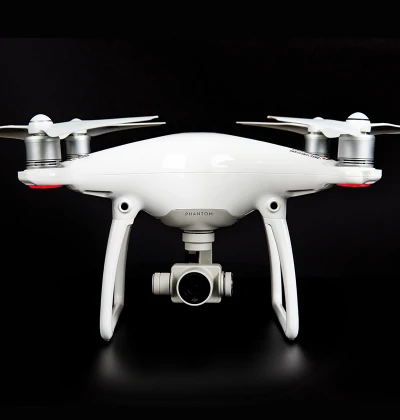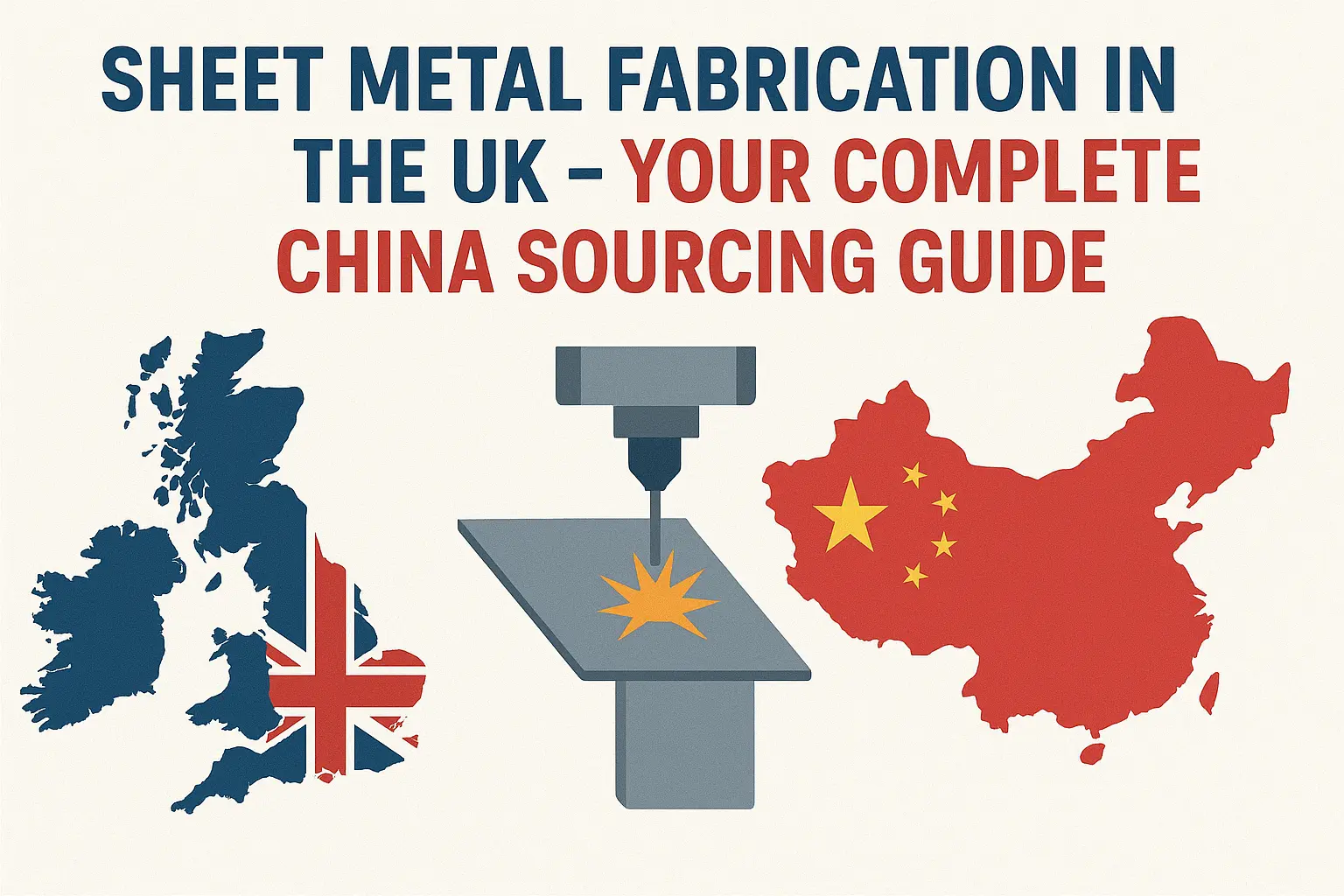- Room 1807, Unit 9, Building 2, Shangxing Commercial Street, Shangde Road, Shangxing Community, Xinqiao Subdistrict, Bao'an District, Shenzhen City, China




Aerospace & UAV
WJ Prototypes is your 3D manufacturing partner from prototype to large scale production.
Consumer Electronics
New Product Introduction Solutions for Consumer Electronics.

Robotics & Automation
Need some assistance bringing your robotic device or parts from the sketch-board to reality?
Medical Devices
The medical industry needs high quality, dependable and safe parts and products.
Automotive
New Product Introduction Solutions for Automotive
Industrial Machinery
The main purpose of industrial prototyping is to take the product from drawings into the real world.


The UK manufacturing landscape has evolved dramatically over the past decade, with businesses increasingly exploring global sourcing options to remain competitive. Sheet metal fabrication has become increasingly complex as UK businesses seek cost-effective solutions while maintaining quality standards. This comprehensive guide examines the critical decision between sourcing from China versus working with local UK suppliers, providing practical insights for procurement professionals and manufacturing managers.
With China controlling over 54% of global steel production and offering potential cost savings of 30-50% compared to European suppliers, the financial incentives are compelling. However, successful international sourcing requires careful consideration of quality control, logistics, regulatory compliance, and total cost of ownership. Understanding these factors is essential for making informed decisions that align with your business objectives and project requirements.
The UK sheet metal fabrication sector represents a cornerstone of British manufacturing, serving industries from automotive and aerospace to construction and renewable energy. Modern sheet metal fabrication requires advanced equipment and skilled technicians, with leading UK facilities investing heavily in laser cutting systems, CNC machinery, and automated production lines.
Finding the right sheet metal manufacturer can significantly impact your project success, particularly when dealing with complex specifications or tight delivery schedules. The UK market is characterized by several key strengths that differentiate it from international alternatives. British manufacturers typically excel in rapid prototyping, complex custom work, and applications requiring close collaboration between engineering teams. Here is a detailed guide about Cost-Effective Prototyping in China: A Guide for UK Manufacturers
The regulatory environment in the UK provides additional advantages, with manufacturers operating under stringent quality standards and environmental regulations. This framework ensures consistent quality and compliance with British Standards, CE marking requirements, and industry-specific regulations. For businesses in regulated sectors such as medical devices, automotive, or aerospace, these compliance advantages often justify the premium associated with UK sourcing.
Technology adoption within the UK sheet metal fabrication industry has accelerated significantly, with manufacturers embracing Industry 4.0 principles, IoT integration, and data-driven quality control systems. These technological advances enable UK suppliers to compete more effectively on efficiency and precision, even when facing cost pressures from international competitors.
China’s sheet metal fabrication industry offers compelling advantages that have attracted businesses worldwide. The scale of Chinese manufacturing operations creates economies that are difficult to match in smaller markets, with some facilities processing thousands of tons of material monthly. Chinese suppliers have invested heavily in modern equipment and technical expertise, enabling them to handle complex projects while maintaining significant cost advantages.
The cost benefits of Chinese sourcing typically range from 30-50% compared to UK suppliers, stemming from lower labor costs, economies of scale, and government support for manufacturing infrastructure. Additionally, many Chinese suppliers offer faster prototyping services, with turnaround times of 5-7 days compared to 2-3 weeks commonly seen in Europe. Learn How UK Manufacturers Can Reduce Lead Times with Chinese Rapid Prototyping
However, the Chinese market presents unique challenges that require careful navigation. Quality consistency can vary significantly between suppliers, making thorough due diligence essential. Communication barriers, time zone differences, and cultural considerations can complicate project management, particularly for complex custom applications requiring frequent design iterations.
The regulatory landscape adds another layer of complexity, with UK businesses needing to ensure compliance with British Standards, import regulations, and industry-specific requirements. Recent changes in UK-China trade relationships have also introduced additional considerations around supply chain resilience and risk management. Here is the must followed UK Customs Rules When Importing From China
Leading Chinese sheet metal fabrication companies have made substantial improvements in quality systems and technical capabilities over recent years. Many now operate ISO-certified facilities with advanced testing equipment and skilled engineering teams. However, success in Chinese sourcing depends heavily on identifying and partnering with reputable manufacturers who can consistently meet UK quality standards.
Upload your designs/CAD files through our contact us page
OR Email to info@wjprototypes.com
We Are Happy To Help You! - Serving Clients Worldwide From China - Dedicated Project Manager.
No MOQ | Quality & Precision | Fast Turnaround | Rapid Prototypes | Low-Volume To Mass Production | Global Delivery
Successful custom sheet metal fabrication depends on clear specifications and quality control measures implemented from project inception. Whether sourcing domestically or internationally, the complexity of custom sheet metal fabrication demands experienced engineers and advanced machinery, along with robust project management processes.
The foundation of effective sourcing lies in developing comprehensive technical specifications that eliminate ambiguity. This includes detailed drawings with dimensional tolerances, material specifications with grade requirements, surface finish standards, and any special testing or certification needs. Clear specifications ensure that quotes are comparable and that the final product meets your exact requirements.
Supplier qualification represents a critical phase that should never be rushed. This process involves evaluating technical capabilities, quality systems, financial stability, and production capacity. For international suppliers, consider conducting facility audits or working with third-party inspection services to verify capabilities and quality systems.
Communication protocols become especially important when working with international suppliers. Establish clear channels for technical discussions, regular progress updates, and quality issue resolution. Many successful partnerships involve dedicated project managers, shared digital platforms for document management, and regular video conferences to maintain alignment throughout the production process.
Risk management strategies should address potential issues including quality problems, delivery delays, and supply chain disruptions. Develop contingency plans that include alternative suppliers, expedited shipping options, and quality recovery procedures. For critical applications, consider dual sourcing strategies that combine the cost advantages of international suppliers with the reliability of local backup options.
Quality control becomes even more critical with customised sheet metal applications, where standard specifications may not apply and each project presents unique challenges. The cost of customised sheet metal varies significantly based on complexity and volume, making quality issues particularly expensive to resolve after production.
Material certification forms the foundation of quality control, particularly for applications with specific performance requirements. Suppliers should provide mill test certificates for all materials, along with any additional testing such as chemical analysis, mechanical properties verification, or specialized testing for specific applications. This documentation becomes especially important when dealing with international suppliers, as it provides traceability and verification of material properties.
In-process quality control measures should include dimensional verification at key stages, surface quality assessment, and any required testing such as pressure testing or non-destructive examination. For complex projects, implement stage-gate reviews where production cannot proceed without quality approval at each phase.
Final inspection protocols must be comprehensive and well-documented, with clear acceptance criteria and procedures for handling non-conforming products. When sourcing internationally, final inspection often needs to occur at the supplier’s facility to avoid costly returns and shipping delays. This frequently involves third-party inspection services or detailed supplier quality agreements that define inspection requirements and acceptance criteria.
Documentation and traceability systems should capture all quality-related information throughout the production process. This includes material certifications, inspection records, test results, and any corrective actions taken. Proper documentation not only ensures quality but also provides valuable data for continuous improvement and future sourcing decisions.
International sourcing introduces logistical complexities that can significantly impact project timelines and costs. Understanding the total cost of ownership requires careful analysis of shipping costs, customs duties, insurance, and potential delays that could affect project schedules.
Shipping options vary significantly based on product characteristics and urgency requirements. Sea freight offers the most economical solution for large or heavy items but requires longer lead times and careful packaging to prevent damage during transit. Air freight provides faster delivery but at substantially higher cost, making it suitable primarily for urgent or high-value items.
Customs and regulatory compliance represent critical considerations that can create significant delays if not properly managed. The UK’s regulatory framework includes specific requirements for metal products, with mandatory approvals needed for certain applications. Understanding these requirements early in the sourcing process helps avoid delays and ensures compliance with all applicable regulations.
Insurance and risk management become more complex with international sourcing. Consider comprehensive coverage that includes transit insurance, supplier default protection, and coverage for quality issues that might not be discovered until after delivery. Additionally, develop contingency plans for potential supply chain disruptions, including alternative suppliers and expedited shipping options.
Documentation requirements for international sourcing are extensive and must be managed meticulously to avoid customs delays. This includes commercial invoices, packing lists, certificates of origin, material certifications, and any required regulatory approvals. Working with experienced freight forwarders and customs brokers can help ensure that all documentation is complete and accurate.
The decision between UK and Chinese sourcing involves weighing multiple factors that extend beyond simple cost comparisons. A reliable sheet metal manufacturer should demonstrate consistent quality and delivery performance, regardless of location, but the risk profiles and total cost considerations differ significantly between domestic and international sourcing.
Cost analysis must consider the total cost of ownership rather than just the initial purchase price. While Chinese suppliers typically offer 30-50% lower base costs, UK suppliers provide advantages in reduced logistics costs, faster delivery times, and lower risk of quality issues or delays. For projects with tight timelines or complex technical requirements, the additional cost of UK sourcing often represents excellent value.
Quality considerations frequently favor UK suppliers, particularly for complex or critical applications. UK manufacturers typically operate under more stringent quality systems and regulatory oversight, providing greater consistency and reliability. However, leading Chinese suppliers have made significant investments in quality systems and can achieve comparable results when properly selected and managed.
Communication and project management tend to be more straightforward with UK suppliers, eliminating language barriers and time zone differences that can complicate international projects. This advantage becomes particularly important for complex custom work requiring close collaboration between design and manufacturing teams.
Lead times vary significantly between UK and Chinese suppliers, with UK manufacturers typically offering faster turnaround for standard products but potentially longer times for complex custom work due to capacity constraints. Chinese suppliers often provide faster prototyping but longer overall project timelines when shipping and customs clearance are included.
Risk management considerations generally favor UK sourcing, with lower risks related to quality issues, delivery delays, regulatory compliance, and intellectual property protection. However, these risks can be effectively managed with proper supplier selection and contract terms for Chinese sourcing.
WJ Prototypes demonstrates how UK manufacturers can compete effectively by combining advanced capabilities with exceptional service and reliability. With a 12,000 square meter manufacturing facility housing over 200 modern machines and 150+ experienced engineers, the company offers comprehensive services including CNC machining, injection molding, and sheet metal fabrication under one roof.
The company’s performance metrics illustrate the advantages of working with a well-established UK manufacturer. WJ Prototypes achieves a 99.2% on-time delivery rate, 99.8% customer satisfaction rate, and 99.3% yield rate. These metrics compare favorably with industry standards and demonstrate the reliability that UK businesses value when managing complex projects with tight deadlines.
One of WJ Prototypes’ key differentiators is their no minimum order quantity requirement, making them accessible for both prototype work and production runs. This flexibility, combined with their comprehensive capabilities, allows them to serve as a single source for complex projects that might otherwise require multiple suppliers, reducing project complexity and management overhead.
Customer testimonials consistently highlight the practical benefits of working with WJ Prototypes. Clients regularly describe the company as “one of the easiest job shops to work with in the last 10 years,” emphasizing their responsiveness, technical expertise, and competitive pricing. The company has successfully delivered time-sensitive projects with strict requirements, demonstrating their ability to handle complex challenges while maintaining quality standards.
The company’s approach to quality control incorporates advanced systems and experienced personnel, ensuring that each project meets or exceeds customer expectations. This combination of modern equipment, skilled workforce, and proven processes enables WJ Prototypes to compete effectively on both quality and cost while providing the communication and service advantages of local sourcing.
Working with WJ Prototypes eliminates many of the risks and complexities associated with international sourcing while providing cost-effective solutions that often compete favorably with overseas alternatives when total project costs are considered. Their local presence enables rapid response to urgent requirements and close collaboration on complex technical challenges.
Upload your designs/CAD files through our contact us page
OR Email to info@wjprototypes.com
We Are Happy To Help You! - Serving Clients Worldwide From China - Dedicated Project Manager.
No MOQ | Quality & Precision | Fast Turnaround | Rapid Prototypes | Low-Volume To Mass Production | Global Delivery
The sheet metal fabrication industry in the UK faces unique challenges and opportunities as businesses balance cost pressures with quality requirements and supply chain reliability. Success in sourcing requires a strategic approach that considers both immediate project needs and long-term business objectives.
For businesses considering international sourcing, start with a thorough assessment of your specific requirements, including quality standards, delivery timelines, regulatory compliance needs, and total cost considerations. Projects with complex technical requirements, tight timelines, or critical quality standards may be better suited for UK suppliers, while standard products with flexible timelines may benefit from Chinese sourcing.
Develop a comprehensive supplier evaluation framework that includes technical capabilities, quality systems, financial stability, communication effectiveness, and cultural fit. This framework should be applied consistently to all potential suppliers, regardless of location, to ensure objective decision-making based on your specific requirements.
Consider implementing a hybrid sourcing strategy that leverages the strengths of both UK and international suppliers. This might involve using UK suppliers for prototyping and complex custom work while sourcing standard components internationally. Such an approach can optimize both cost and performance while maintaining supply chain flexibility and risk management.
Invest in building strong relationships with selected suppliers, regardless of their location. Strong partnerships built on clear communication, mutual respect, and shared objectives often prove more valuable than marginal cost savings achieved through frequent supplier changes. Long-term relationships enable suppliers to better understand your requirements and invest in capabilities that benefit your business.
The decision between UK and Chinese sheet metal fabrication sourcing ultimately depends on your specific project requirements, risk tolerance, and strategic objectives. While Chinese suppliers offer compelling cost advantages and production capabilities, UK suppliers provide benefits in quality consistency, communication, and supply chain reliability that may justify their premium pricing for many applications.
Success in either approach requires thorough supplier evaluation, clear specifications, robust quality control measures, and effective project management. The key is matching your sourcing strategy to your specific needs rather than pursuing a one-size-fits-all approach that may not optimize for your unique requirements.
Companies like WJ Prototypes demonstrate that UK manufacturers can compete effectively by focusing on quality, service, and comprehensive capabilities. Their proven track record of 99.2% on-time delivery and 99.8% customer satisfaction illustrates the value proposition that well-managed UK suppliers can offer to businesses seeking reliable, high-quality sheet metal fabrication services.
Whether you choose UK or Chinese sourcing, invest time in supplier selection, relationship building, and quality system development. These investments will pay dividends in improved product quality, reduced project risks, and more predictable outcomes that support your business objectives and customer commitments.
Upload your designs/CAD files through our contact us page
OR Email to info@wjprototypes.com
We Are Happy To Help You! - Serving Clients Worldwide From China - Dedicated Project Manager.
No MOQ | Quality & Precision | Fast Turnaround | Rapid Prototypes | Low-Volume To Mass Production | Global Delivery